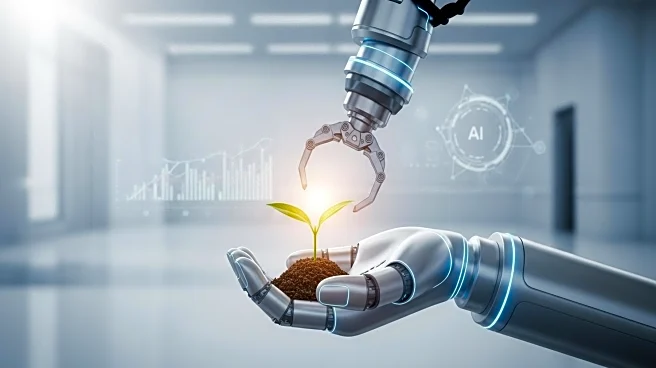What's Happening?
Steve Preston, CEO of Goodwill, has raised concerns about the impact of artificial intelligence (AI) and automation on employment, particularly affecting entry-level and low-wage jobs. Goodwill, which operates over 650 job centers, is preparing for an increase in unemployed young people due to AI-driven job displacement. Preston, who previously served as the United States Secretary of Housing and Urban Development, notes that large organizations are beginning to lay off workers as they transition to AI technologies. He highlights that call centers and sales roles are among the hardest hit, and warns that even those with degrees may struggle to find entry-level positions, which could have a ripple effect on more senior roles.
Why It's Important?
The potential for AI to disrupt the job market is significant, particularly for Gen Z and young adults without college degrees. Entry-level positions are crucial for gaining foundational skills and experience, and their reduction could hinder career development for many. This shift may exacerbate youth unemployment and create challenges for economic stability, as young people struggle to find work and contribute to the economy. The situation underscores the need for adapting educational and training programs to equip the workforce with digital skills necessary for the evolving job market.
What's Next?
Goodwill is actively engaging with employers to identify the skills required for future job seekers, emphasizing the importance of digital proficiency. Preston advises young people to develop skills in tech tools used in workplaces, such as Microsoft Excel and Google Docs, and to become proficient in AI tools like ChatGPT. Additionally, he suggests exploring clean tech skills, such as solar panel installation, as alternative career paths. For millennials and older job seekers, acquiring digital skills is crucial to accessing available job opportunities.
Beyond the Headlines
The shift towards AI and automation raises ethical and societal questions about the future of work and the role of technology in shaping employment landscapes. It challenges traditional education systems to adapt and prepare students for a tech-driven economy. Moreover, it highlights the importance of inclusive hiring practices and the need for policies that support workforce transitions in the face of technological advancements.









